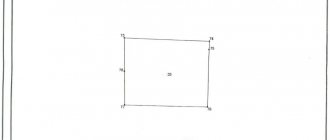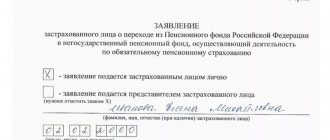After completing the purchase and sale agreement, the new owner of the property takes ownership, and the seller receives a key to the safe from a bank specialist. With this scheme, both parties can be confident in each other and the safety of the operation.
Who pays for the cell
Space in a bank vault is rented for a month. An apartment can be registered a week in advance, but in order to insure in case of force majeure, the buyer takes the place for a long period of time. The seller can agree with the buyer to remove the cell in half.
Documents for cell removal
In addition to the tripartite agreement, the parties to the transaction sign an additional agreement. It specifies the circumstances under which the seller receives money after completing the home purchase procedure. If the transaction is postponed, the buyer has the right to open the safe and take away the cash.
He retains the right to draw up a list of documents in the additional agreement, after presentation of which the seller has the right to withdraw the money. In addition to a certificate from the Unified State Register of Real Estate, an agreement from Rosreestr, you can ask to see a document of acceptance and transfer of housing or a document proving that no one is registered in the apartment.
How long can you store valuables in a cell?
The cell can be rented for any time. Usually the contract is concluded for a period from 1 day to 3 years with the possibility of extension (prolongation). And here you need to be careful. The bank can prolong the agreement by default, then your valuables remain in the cell, and you only pay the required amount for storage.
If there is no automatic extension, it all depends on the contract. Some banks will remind you that your lease is expiring, while others will not.
In any case, if you do not pick up the property on time, the bank may open the safe and place the contents in a single locked bank vault. And when you decide to pick up your items, you may be required to pay compensation - a fine and a higher storage fee.
To avoid unpleasant surprises, you should carefully study all the terms of the contract.
How much does a cell cost?
The larger the cell size, the more expensive the rent. On average, a safe will cost you from 40 to 90 rubles per day.
Banks often give a discount of up to 50% on the rental of safe deposit boxes. For example, clients who open holiday deposits, or owners of premium service packages.
Additionally, you may be asked for a deposit for the key and use of the locker. Here the numbers can differ by an order of magnitude: in some banks the deposit is 500 rubles, in others - 3000. The deposit will be returned when you empty the safe.
Are all cells equally secure?
The basic requirements for the security of bank vaults and safes are specified in GOSTs (the necessary standards can be found by searching on the Rosstandart website for the query “vault security”). Plus, banks are developing internal security standards. But in general, there are no big differences in the security systems of different banks.
And, despite all the efforts of banks, sometimes it happens that they are robbed and bank deposit boxes are hacked. Moreover, this happens in both large and small banks. There is no pattern here. The chance that scammers will target your bank is very small, but it cannot be completely ruled out.
Transferring money when selling an apartment: risks and how to avoid them
Handing over cash for real estate is dangerous. This must be done with many nuances in order to reduce risks, and a safe deposit box, letter of credit or deposit reduces them to a minimum. The most popular payment option is a safe deposit box in a bank vault. The main advantages of this type are the complete adaptation of operations for individuals and ease of operation. Let's consider the main factors that influence the riskiness of an enterprise:
- Ignorance of legislation.
- Fraudulent schemes.
- In an attempt to save money, people refuse the participation of a notary and professional lawyers when concluding a transaction.
- When transferring cash, there is a risk of losing not only it, but also your future home.
- A safe deposit box eliminates the possibility of counterfeit banknotes (when using a money verification service).
- The main risk arises when concluding a transaction and transferring money.
- Transfer of ownership of the apartment after payment has been made (the registration procedure lasts about a month).
Choose an experienced lawyer and notary. Having a diploma does not mean that a person is legally literate. Judge by the specialist's reputation. It is difficult for the average person to understand that the transaction is fictitious, and transferring funds without bank insurance is an additional risk. The involvement of third parties should always be a concern for buyers and sellers.
What happens if robbers do steal valuables from my safe deposit box?
The chances of returning the stolen property or receiving its value in cash depend on the agreement you entered into with the bank.
It is safer to use a custody agreement . In this case, the bank is responsible for the safety of the contents. Valuables are accepted and issued according to the inventory. If you put money in a safe deposit box, the bank will count it and check its authenticity. If you are going to store other property, the bank will hire an appraiser to enter the fair value into the contract. You will have to pay for this separately. But if something disappears from the cell, the bank must fully compensate for the damage. But not all banks provide this service.
Much more often they offer a regular lease agreement . This means that the bank does not control what is in the safe: the bookmark occurs without an inventory and without the participation of bank employees. A safe deposit box is opened with two keys: one is kept with you, the other is kept in the bank. Therefore, the bank employee will enter the vault with you to open the safe with his key. Then he will leave the room, and you will have time to put your valuables in the box.
In any case, the bank is responsible for the safety of the safe. By law, if a cell is robbed, the bank is obliged to compensate you for losses, that is, fully compensate for the amount of missing property. And you can sue the bank. But in fact, it will be difficult to prove without an inventory that there was a diamond necklace in the cell and not a bag of chips. In this situation, all hope is only with the police.
Thus, under a lease agreement, it is safest to store only what is of no interest to bank robbers - for example, documents. Another option is to separately insure the property. If the bank itself does not offer you this service, you can contact a third-party insurance company.
Payments for an apartment through a letter of credit
A letter of credit is a banking service that represents an obligation of the bank, on behalf of the client, to make a payment from a special (letter of credit) account to a specified person (recipient) upon presentation of the agreed documents.
The essence is the same as that of a safe deposit box (see above), but in the safe deposit box the payment is in cash, but here it is by bank transfer .
In what cases may registration of a transaction with an apartment fail? Reasons for suspension and refusal to register rights – see the link.
The bank in which the Buyer opens a letter of credit is called the issuing bank .
The bank that will issue money to the Seller is called the executing bank (may be the same bank as the issuer).
The provision by the Seller of documents confirming the sale of the apartment and the transfer of ownership is called a method of executing a letter of credit .
A letter of credit can be covered (deposited) or uncovered (guaranteed). In the first case, the issuing bank actually transfers the money to the account of the executing bank , and in the second case, the money is stored in the account of the issuing bank until the letter of credit is executed .
A letter of credit can also be revocable or irrevocable . Here we are talking about the arbitrary possibility of the issuing bank to revoke the letter of credit from the executing bank .
a covered irrevocable letter of credit is usually used . It is this type of it that allows the interests of both the Seller and the Buyer to be taken into account to the greatest extent.
♦ Sequence of actions when paying through a letter of credit ♦ (Click! And the algorithm for how the letter of credit works will open in a pop-up window)
The cost of settlements for a transaction through a letter of credit is comparable to the cost of settlements through a safe deposit box. You can compare prices and conditions in the “SERVICES” section.
Banking services for settlements through letters of credit (Sberbank, VTB, Alfa Bank) - HERE (SERVICES).
More details about the procedure for opening a letter of credit, making payments through it (with sample applications and agreements), and the pros and cons of the letter of credit form of payment are described in a separate note at the link.
What documents for opening a letter of credit are in practice submitted to the bank, as well as about all the nuances of such calculations, you can read on our thematic FORUM here.
And in the primary housing market, instead of a letter of credit, they use a payment instrument very similar to it - special escrow accounts (more about them - follow the link).
What you need to know about taxes and tax deductions when making a transaction for the purchase and sale of an apartment - see here.
How to rent a safe deposit box in a bank?
1. First you need to draw up an agreement, for this you will need a passport. If you want to use a safe deposit box to transfer money, for example, for a plot of land, you must come to the bank together with the seller and conclude a tripartite agreement.
2. Select the cell size and rental period. To complete the transaction, the locker is needed for a short period of time, usually no more than a month, but if necessary, the lease can be extended.
It is better to choose an agreement with automatic renewal (extension), otherwise you (or even together with the seller) will need to come to the bank again to renew the lease.
3. After this, you will be given a key to the cell. The second key remains with the bank. Additionally, you may be given, for example, a one-time electronic pass to enter the storage unit.
If you are going to transfer money for the purchase of an apartment or plot using a safe deposit box, then you can immediately hand over the key to the seller. But he will be able to use it only after the property becomes yours.
4. To put something into or take something from a cell, you and a bank employee enter the vault. The employee opens the locker with his key, and you open it with yours. Depending on what type of agreement you have - rental or storage of valuables - the bank representative either controls what you put in or take out, or leaves you alone with the safe.
If you choose a storage agreement for valuables, the bank counts the money and checks its authenticity, draws up an inventory, and then places it in a safe deposit box in front of you. If it is a lease agreement, the bank employee does not check what you put there.
5. After you place or pick up the property, you (or the seller) lock it with your key, and the employee with his.
6. To access the locker again, you will need to present your passport again.
If you are buying real estate, after putting money in the box, you can work with the seller to register the property in your name. The seller comes to the bank with his copy of the agreement registered in Rosreestr. After presenting the documents, the bank gives him access to the safe deposit box and he withdraws the money.
Will my relatives be able to access the box if something happens to me?
The easiest way is to immediately issue a power of attorney to another person to allow him access to the safe. The bank will either issue it itself at your request, or will ask for a power of attorney certified by a notary.
You can draw up a power of attorney that will only be valid under certain conditions. For example, upon presentation of the death certificate of the person who issued the power of attorney, then it actually becomes an analogue of a will.
If such a power of attorney is not issued, then your loved ones may try to obtain valuables from your safe deposit box through a notary. The action plan in this case will be as follows:
1. Within six months from the date of death, relatives must contact a notary to enter into an inheritance. He will send a request to the bank to find out which accounts, deposits and cells were registered in the name of the deceased. If it is known exactly which bank he was serviced in, the notary will send the request there. But usually, just in case, notaries send requests to all banks in their region that work with individuals.
2. If a safekeeping agreement has been concluded, the bank will immediately respond that it is stored in the safe deposit box. In the case of a lease agreement, the bank will open the box, describe the contents and send the inventory report to the notary.
3. The heir must obtain a certificate of inheritance from a notary and bring it to the bank. With this document and passport he will be able to receive valuables.
But it’s worth keeping in mind: the bank may require evidence that the valuables in the locker belonged to its tenant. After all, theoretically, a person could put other people’s things there - for example, a Faberge egg, which an old friend bought at an auction and asked to keep it for a while.
If the bank gives this jewelry to the heirs, and then its real owner shows up with a receipt for the purchase and a receipt saying that he gave it to a friend, the bank will be in big trouble. The court may order the bank to return the property to the owner or compensate its value.
Therefore, sometimes banks play it safe and, if the heirs cannot provide proof of ownership, they keep the item for indefinite storage.
pros
- Safety . The bank has a multi-stage protection system. A safe deposit box is a metal safe in a room with an armored door, security, alarm and video surveillance. So storing valuables here is much safer than at home, although risks still remain. After all, Ocean and his friends can be met in everyday life.
- Property safety . The contents of the box are your property, not the bank's. Even if the bank’s license is revoked, the safe deposit box will not be opened without you, and the valuables will be returned to you in their entirety - the limit of 1.4 million rubles does not apply to what is stored in safes. And your valuables in the safe deposit box are not taken into account when calculating compensation from the DIA if you had an account with the same bank. You will receive your treasures back within a few days.
- Bank secrecy regime . The bank has no right to disclose to outsiders information that you have a safe deposit box and what is in it. An exception is the requirement of the Ministry of Internal Affairs, the FSB or the court.
Apartment on the primary market
It is worth immediately making a reservation that when purchasing real estate in a new building, as a rule, you do not have to choose between different payment methods - the scheme of mutual settlements is determined by the developer.
Most often we are talking about issuing an invoice, which is paid by bank transfer, however, starting in July 2021, this method of payment has become much more secure, after the mandatory transition of developers to working with escrow accounts.
Now the buyer transfers money to a specialized bank account, from which the developer can receive money only after putting the house into operation and signing the apartment acceptance certificate.
Risks
- Theft . The probability is extremely low, but still there. If you have entered into an agreement for safekeeping of valuables , the bank will return the value of these valuables. But if this is a rental agreement , you will have to prove in court what exactly was stolen from the locker. Plus, the agreement with the bank may provide for compensation if the cell is robbed. But this condition does not always exist, and even if it does, the compensation may be very small.
- Breach of confidentiality . In exceptional cases, the bank has the right to open a safe deposit box without a tenant and describe the contents. These include natural disasters and emergencies, such as an earthquake or terrorist attack. But much more often this happens when the owner of the cell simply forgets to renew the contract. If you do not want to advertise what is stored in the locker, carefully monitor the rental period.
- Damage to valuables . For example, you did not pick up your things on time and the bank, while transferring your jade figurines from the cell to the storage room, dropped one on the way. By law, in this case, the bank is obliged to fully reimburse you for the cost of this property.
- Seizure . By decision of the court or with the permission of the prosecutor, the cell can not only be opened, but also everything stored in it can be confiscated. This, of course, does not threaten law-abiding citizens.
- Fines . If you damage the cell, lose the key or do not return it on time, the bank will retain the deposit. Sanctions are also threatened if you do not vacate the cell on time and do not renew the contract. The bank will require an increased fee for storage beyond the term - the cost of rent plus a penalty (often in the same amount as the rent itself). In addition, the bank may charge a fine for each day of delay.
- Fraud . The bank does not check the legality of your transaction and does not examine the authenticity of the documents that the seller brings. Therefore, we cannot exclude the possibility that fraudsters will gain access to the deposit box using counterfeit papers. Although in the case of real estate transactions, banks most often make an additional request to Rosreestr to make sure that ownership rights have transferred to the buyer.
VAT – 2022
The best speaker on tax topics, , will prepare you for filing your return on January 14 . There are 10 out of 40 places left for the online workshop . The flow is limited, as there will be live communication with the teacher live. Hurry up to get into the group. Sign up>>>
Payments through a notary
When completing a transaction for the purchase and sale of an apartment through a notary, the parties to the agreement, with the consent of the notary himself, can make non-cash payments with him. Since 2015, after the entry into force of Federal Law No. 457-FZ (see paragraph 4 - here), notaries have been given official authority to provide services for the deposit of funds for settlements on transactions (including real estate).
An open deposit of a notary allows him to make payments for the purchase and sale of an apartment through his bank account , i.e. accept money from the Buyer before registering the transaction, and transfer it to the Seller’s account after registration. The conditions for transferring money from the Buyer to the notary's deposit, and the conditions for issuing it to the Seller, are established in a separate Cash Settlement Agreement , which the parties sign together with the Apartment Purchase and Sale Agreement. The essence of this Agreement is the same as that of the additional agreement to the lease agreement for a safe deposit box (see above).
The cost of settlement through a notary's deposit is only 1,500 rubles, subject to certification of the Apartment Purchase and Sale Agreement by him. But you also need to keep in mind that banks usually charge a commission for transferring money from the Buyer’s account to the notary’s deposit account, and an even larger commission for the Seller withdrawing money from their account.
The possibility of cash payments through a notary's deposit is enshrined in the law in Article 327 of the Civil Code of the Russian Federation. True, paragraph 3 of the same article 327 allows the Buyer to withdraw his money back from this deposit at any time. To prevent this from happening during the registration process of the transaction, the parties to the contract should (again with the help of a notary) write down in the Settlement Agreement clear and unambiguous conditions in which cases the Buyer can take his money back. For example, only if registration was refused, or if registration did not occur within, say, 45 days (i.e. if the transaction did not take place).
More details about the method of transferring money through a notary deposit are described in a separate note at the link.
This notary service greatly facilitates mutual settlements for a real estate transaction (including an alternative transaction), because not only eliminates the need to draft and sign a number of agreements and conditions (for rent and access to a safe deposit box, for example), but also allows you to carry out the entire transaction (including mutual settlements) in one place - the notary’s office.
A minor child in an apartment purchase and sale transaction. What to do? See the corresponding step of the Instructions.











